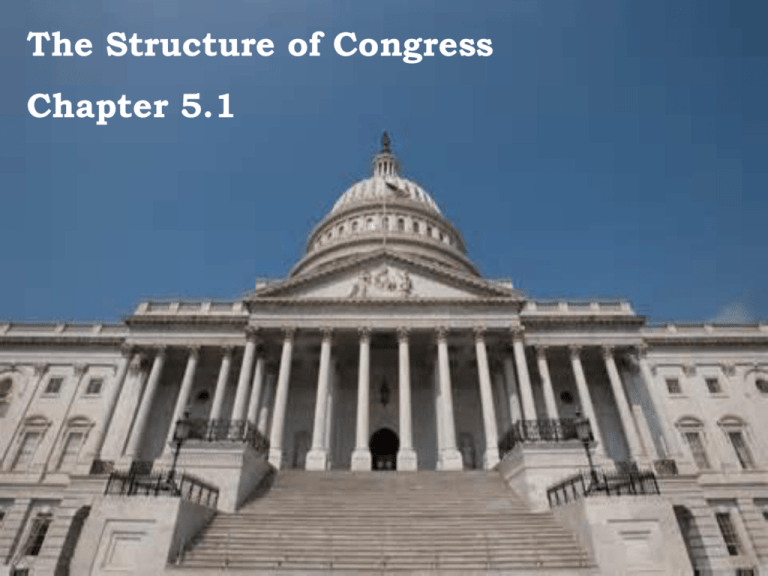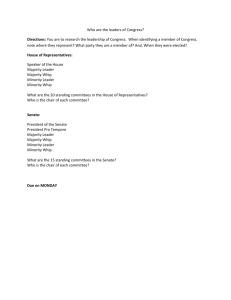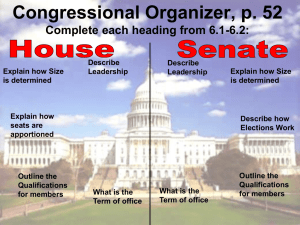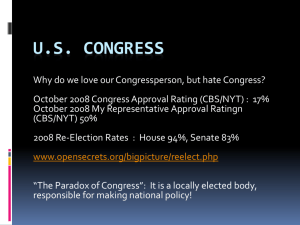Structure of Congress
advertisement

The Structure of Congress Chapter 5.1 AM Take out your homework and write your name on a note card. • Answer the following questions using your notes. Review. 1. There are ____ members of the House of Reps 2. Define gerrymandering 3. Senators are elected every ____ years 4. What does the president pro tempore do? 5. What is a joint committee? PM: Take out your homework and write your name on a note card. 1. How many members are in the House? 2. Define gerrymandering. 3. A Senate member serves _____ years. 4. If the vice-president can’t preside over the Senate, who does? 5. What is a select committee? PM8: Take out your homework and write your name on a note card. 1. How many members are in the Senate and House together? 2. Define gerrymandering. 3. A House member serves _____ years. 4. If the vice-president can’t preside over the Senate, who does? 5. What is a select committee? Terms and Sessions • Each congress lasts for a term of two years • It’s numbered to identify its two-year term – now we are in the 113th Congress • It’s further divided into 2 sessions each lasting 6 months House of Representatives 435 • 435 Members • 2 year term – no term limits • Divided among the 50 states based on representation • Government uses the U.S. Census to determine population – every 10 yrs • Each state is divided into congressional districts • They represent constituents (us!) • There are 6 nonvoting members from territories and Washington DC. Gerrymandering • When state law makers draw districts that benefit one political party Senate • 100 members • 6 year term • Elections are staggered so no more than 1/3 of the senate is running at a time. • If a senator dies, the state governor fills the position or calls a special election Congressional Leadership HOUSE Speaker of the House – guides bills, leads debates, the “face” of the House Majority Whip – ass’t House Minority Leader Minority Whip – ass’t SENATE Vice President presiding officer, tiebreaker President Pro Tempore – presides over when the vice president is not there Senate Majority Leader Senate Minority Leader Committees • Standing – they focus on specific areas of government work: Homeland Security, Judiciary, Education • Select – temporary committees to work with special issues: disaster relief • Joint Committee – Members from both houses that work together on a special issue: rewriting the tax code









